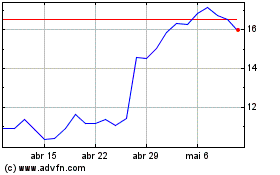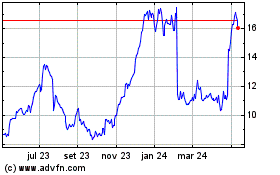By Newley Purnell and Eric Bellman
COLOMBO, Sri Lanka -- Days after bomb blasts killed more than
300 people across Sri Lanka, Facebook and other top social-media
platforms remained blocked in one of the largest experiments in
government control over social media. While some citizens said they
welcomed the restrictions, others said they had found
workarounds.
Security officials are worried the Easter Sunday morning attacks
-- which targeted churches and tourists across the country -- could
trigger rumors, backlash, riots or even retaliation. So the
government shut down Facebook, its WhatsApp and Instagram apps,
Google Inc's YouTube, and even Snap Inc.'s Snapchat to create a
speed bump for hate speech and false reports.
Prime Minister Ranil Wickremesinghe speaking to news media
Tuesday declined to say when the blocks would be lifted. "We went
through this exercise earlier," he said, referring to a similar
shutdown a year ago amid heightened interreligious tensions, "and
we didn't want to take another chance."
A Facebook Inc. spokeswoman didn't immediately respond to a
question about how long the block on its services might last. A
Google spokesman declined to comment. A spokeswoman for Twitter,
which remains accessible, didn't immediately respond to a request
for comment.
Pathmasiri Haputhanthiriga, the owner of a mobile-phone
accessories shop said the block had slowed his business by blocking
his regular use of WhatsApp to communicate, but he thought it was
worth the sacrifice. "For information, slower is better," he said,
referring to the blocks on the flow of social-media chatter after
the attacks.
Governments around the world and technology companies are
struggling to stem the flow of hate speech as well as false
information following abuses such as foreign interference in U.S.
elections. Facebook CEO Mark Zuckerberg has embraced stricter
content-moderation requirements and last month said global
regulators should take a "more active role" in governing the
web.
Extremists have used Facebook to stoke violence, including in
Sri Lanka and Myanmar. In India, the government has proposed
forcing WhatsApp to break encrypted messages to find people who
send objectionable content after more than 20 people were killed
last year in mob violence following rumors spread through the app.
A number of nations are focusing on gaps in social media companies'
monitoring of posts and are seeking to impose regulations on
them.
Sri Lanka has been a trailblazer in the battle rein in the
impact of social media. In March 2018 there was a flare up in
tensions between Muslims and Buddhists in some regions of the
country. People spread false reports and organized attacks through
social media, and the government sought ways to stop the spread of
violence.
Facebook, WhatsApp, YouTube and other platforms were blocked in
part or all of the country for days. The violence subsided. Many
felt the reaction was a heavy-handed move -- but it succeeded.
After Sunday's attacks, the government wasted no time in
blocking popular platforms again, according to NetBlocks, a
London-based digital-rights group, and other internet monitoring
groups. Facebook and other platforms remain inaccessible or too
sluggish to use, according to consumers.
Rizvi Arif, an Uber driver in Colombo who is Muslim, said he had
always felt safe in Sri Lanka but wondered what kind of backlash
misinformation could cause for his community. He has stopped going
to the mosque to pray, worried about retaliation from someone
misled by all the misinformation on the internet. His family now
just prays at home.
"I hate Facebook and WhatsApp," he said. "Sometimes, for
emergencies, it's OK" to block such platforms, he said.
To be sure, rumors have still spread in the wake of bombings,
but via word of mouth or television, users note. One rumor that
circulated online incorrectly claimed that the safe demolition of a
bomb by police was an attack. Another rumor spread by word of mouth
claimed that drinking water in the country had been poisoned.
People have been circumventing the government blocks by using
virtual private networks, or VPNs, which reroute traffic so
authorities can't tell where users are logging on from.
University student Mohammed Afrid said he is ignoring government
government suggestions not to use VPNs and employing one to get the
latest news and interact with others. "We need them to get
information" about what's happening following the attacks, he said.
"Without communication, it's like my body doesn't work."
One of the hardest-hit churches -- St. Sebastian's church which
lost more than 100 worshipers in the attack -- decided to use a VPN
to post photos of the destruction on its Facebook page to ask for
help and prayers.
"I just got a VPN because all social media is blocked," said the
Rev. Edmond Tillekeratne, social communications director for the
Archdiocese of Colombo."The truth has to go out."
Some are finding a silver lining in the crackdown. Mr.
Haputhanthiriga, the shop owner, said his daughters are typically
glued to their smartphones but have been forced into old-fashioned
social interaction.
"They are talking now," he said, smiling. "We get to have a
conversation."
Write to Newley Purnell at newley.purnell@wsj.com and Eric
Bellman at eric.bellman@wsj.com
(END) Dow Jones Newswires
April 23, 2019 13:26 ET (17:26 GMT)
Copyright (c) 2019 Dow Jones & Company, Inc.
Snap (NYSE:SNAP)
Gráfico Histórico do Ativo
De Mar 2024 até Abr 2024

Snap (NYSE:SNAP)
Gráfico Histórico do Ativo
De Abr 2023 até Abr 2024
